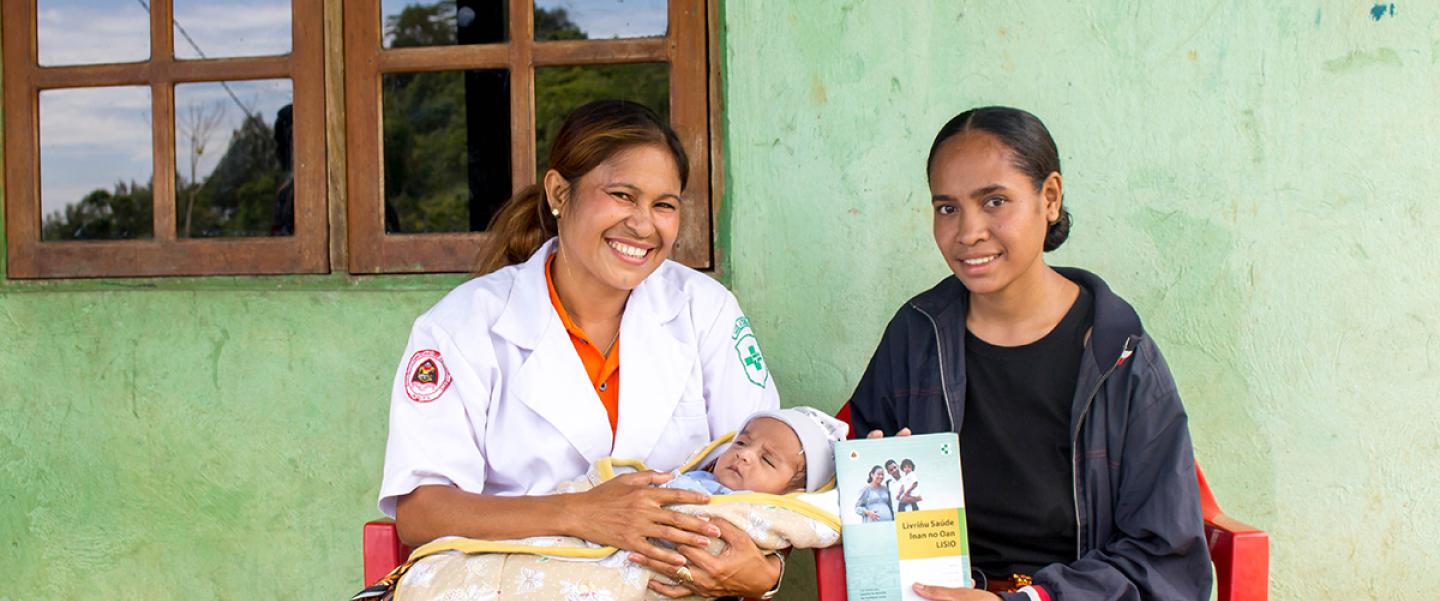HIGHLIGHTS
- The Australia-Timor-Leste Partnership for Human Development (PHD) supports strengthening systems for primary health care.
- The program also strengthens educational systems through coaching and mentoring teachers.
- Supporting implementation of National Action Plans on Disability and Gender Based Violence.
PROJECT
Australia-Timor-Leste Partnership for Human Development (PHD)
The Challenge
Since independence in 2002, Timor-Leste has maintained a stable democracy and achieved steady progress in human development. But mitigating the impacts of poor childhood nutrition and health remain Government priorities, including ensuring competent staff at health facilities across the country to deliver basic health care services.
Similarly, while access to education is improving, the quality of education remains a work in progress. Current focus areas include improving literacy and numeracy, and—as Timor-Leste is a nation of many languages—promoting mother-tongue instruction in early education to aid concept comprehension.
People with disabilities experience discrimination, inequality and social stigma that limits their full and equal access to essential services. School attendance for children with disabilities is likely much lower than that for their peers without disabilities, yet accurate data on their access to education and health services is lacking.
Gender based violence and school-based violence are critical challenges in Timor-Leste, requiring a multi-sectoral approach that combines policy reform, education system strengthening, community engagement, and survivor support at health facilities.
The Approach
The Australian Government’s Australia-Timor-Leste Partnership for Human Development (PHD), managed by Abt, strengthens Timorese government systems to deliver better quality and more inclusive essential services. PHD also supports system reforms based on joint analyses with government partners of service delivery limitations.
PHD helps national and municipal governments and community clinics strengthen delivery of essential primary health care services and supports delivery of family planning services and training of family medicine physicians.
PHD also strengthens systems for teacher and leader professional development. The program introduced a coaching and peer support model to improve delivery of a revised national curriculum and teaching in a way that focuses on the needs, interests, and abilities of the students.
PHD integrates support for the implementation of Timor-Leste’s National Action Plans on Disability, Gender Based Violence and Nutrition into its work with government ministries and with national Organisations of People with Disabilities and women’s organisations.
The Results
PHD has supported Timor-Leste’s Ministry of Health (MoH) to strengthen budget planning and spending through joint assessment and training at all levels of the system, helping to address a key barrier to delivery of primary health care. It also introduced a digital nutrition database to improve monitoring and treatment of malnutrition in children, now rolling out nationwide at the request of MoH.
PHD supported the introduction of a now-nationwide teacher mentoring system, contributing to measurable improvements in student literacy . Budget management is scheduled to transition to the Ministry of Education in 2026.
PHD’s longstanding partnerships with Timor-Leste’s Organisations of People with Disabilities and women’s organisations have contributed significantly to the development and implementation of the National Action Plans on Disability and Gender Based Violence.

